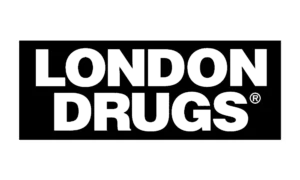Health Insurance Portability and Accountability Act (HIPAA)

What is HIPAA?
The Health Insurance Portability and Accountability Act (HIPAA) of 1996 is a landmark piece of legislation in the United States designed to safeguard the privacy and security of individuals’ medical information. HIPAA was enacted to address the complexities of modern healthcare and ensure that individuals’ health information remains confidential and protected from unauthorized access and misuse. The Act provides comprehensive guidelines for the handling of protected health information (PHI), ensuring that both healthcare providers and patients can have confidence in the confidentiality and integrity of medical records.
Importance and Impact on Healthcare Privacy and Security
HIPAA plays a crucial role in maintaining the trust between patients and healthcare providers. By establishing national standards for the protection of PHI, HIPAA ensures that individuals’ sensitive health information is not disclosed without their consent or knowledge. This protection extends to all forms of PHI, whether electronic, written, or oral. The importance of HIPAA extends beyond privacy; it also includes provisions for improving the efficiency and effectiveness of the healthcare system, reducing fraud and abuse, and ensuring that patients have access to their own health information. The impact of HIPAA on healthcare privacy and security is profound, fostering a safer and more secure environment for the exchange of health information.
Understanding HIPAA
Protected Health Information (PHI)
Protected Health Information (PHI) refers to any information about health status, provision of healthcare, or payment for healthcare that can be linked to a specific individual. This includes a wide range of identifiers, such as names, addresses, birth dates, and Social Security numbers. PHI is the cornerstone of HIPAA’s privacy provisions, as it encompasses all information that could potentially be used to identify a patient and thus must be protected from unauthorized access and disclosure.
Covered Entities
Covered entities under HIPAA are those organizations or individuals that must comply with HIPAA regulations. These include:
- Health Plans: Organizations that provide or pay the cost of medical care, including health insurance companies, HMOs, company health plans, and government programs like Medicare and Medicaid.
- Health Care Providers: Those who provide medical or health services and conduct certain transactions electronically. This group includes doctors, clinics, hospitals, psychologists, chiropractors, nursing homes, pharmacies, and dentists.
- Health Care Clearinghouses: Entities that process nonstandard health information they receive from another entity into a standard format, or vice versa.
Business Associates
Business associates are individuals or entities that perform functions, activities, or services for covered entities involving the use or disclosure of PHI. Examples include billing companies, data storage companies, and IT service providers. Business associates must comply with certain HIPAA provisions and are required to enter into agreements with covered entities to ensure that they protect PHI appropriately.
De-identified Information
De-identified information is health information that has been stripped of all identifiers that could be used to trace it back to an individual. This process involves removing or coding elements such as names, geographic data, dates, and other unique identifiers. Once information is de-identified, it is no longer considered PHI under HIPAA and can be used or disclosed without restriction, provided that the risk of re-identification is minimal. De-identified information is crucial for research, public health, and policy development, as it allows for the use of health data without compromising individual privacy.

Key Components of HIPAA
The Privacy Rule
The Privacy Rule is a fundamental aspect of HIPAA that establishes national standards for the protection of individuals’ medical records and other personal health information. It applies to covered entities and their business associates and sets boundaries on the use and release of health records. The Privacy Rule’s primary goal is to ensure that individuals’ health information is properly protected while allowing the flow of health information needed to provide high-quality healthcare and protect the public’s health and well-being.
Individual Rights under the Privacy Rule
Under the Privacy Rule, individuals have several rights regarding their protected health information (PHI):
- Right to Access: Individuals have the right to inspect and obtain a copy of their health records held by covered entities. This includes the right to receive the information in the form and format they request, if readily producible.
- Right to Amend: Individuals can request corrections to their health records if they identify inaccuracies or incomplete information.
- Right to an Accounting of Disclosures: Individuals have the right to request a list of certain disclosures of their PHI made by covered entities.
- Right to Request Restrictions: Individuals can request restrictions on certain uses and disclosures of their PHI, though covered entities are not always required to agree.
- Right to Confidential Communications: Individuals can request that communications regarding their PHI be conducted through alternative means or at alternative locations.
- Right to Complain: Individuals can file complaints if they believe their privacy rights have been violated.
Limits on Use and Disclosure of PHI
The Privacy Rule sets strict limits on how PHI can be used and disclosed. Covered entities are required to:
- Limit Uses and Disclosures to the Minimum Necessary: Only the minimum necessary information should be used or disclosed for a particular purpose.
- Obtain Authorizations for Non-Routine Disclosures: For uses and disclosures not related to treatment, payment, or healthcare operations, covered entities must obtain the individual’s explicit authorization.
- Provide Notice of Privacy Practices: Covered entities must inform individuals about their privacy practices and their rights under the Privacy Rule.
The Security Rule
The Security Rule complements the Privacy Rule by setting standards for protecting electronic protected health information (ePHI). It applies to all forms of ePHI, which includes any individually identifiable health information transmitted or maintained in electronic media. The Security Rule requires covered entities and business associates to implement appropriate administrative, physical, and technical safeguards to ensure the confidentiality, integrity, and security of ePHI.
Requirements for Protecting Electronic PHI
To comply with the Security Rule, covered entities and business associates must:
- Administrative Safeguards: Implement policies and procedures to manage the selection, development, implementation, and maintenance of security measures to protect ePHI. This includes conducting risk analyses, developing a security management process, and training workforce members.
- Physical Safeguards: Control physical access to protect against inappropriate access to ePHI. This includes implementing facility access controls, workstation use policies, and device and media controls.
- Technical Safeguards: Use technology to protect ePHI and control access to it. This includes access controls, audit controls, integrity controls, and transmission security.
The Enforcement Rule
Penalties for Non-Compliance
The Enforcement Rule establishes guidelines for the investigation and penalty process for HIPAA violations. Penalties for non-compliance can vary based on the nature and extent of the violation and the harm resulting from it. They include:
- Civil Penalties: Ranging from $100 to $50,000 per violation, with an annual maximum of $1.5 million for violations of an identical provision.
- Criminal Penalties: For more severe violations, penalties can include fines and imprisonment. For example, wrongful disclosure of PHI can result in fines up to $250,000 and imprisonment for up to 10 years.
Enforcement Procedures
The Department of Health and Human Services (HHS) Office for Civil Rights (OCR) is responsible for enforcing the Privacy and Security Rules. The enforcement procedures include:
- Complaint Investigations: Individuals can file complaints with OCR if they believe their HIPAA rights have been violated. OCR investigates these complaints to determine if a violation occurred.
- Compliance Reviews: OCR can conduct compliance reviews of covered entities and business associates to ensure adherence to HIPAA regulations.
- Resolution Agreements and Corrective Action Plans: If a violation is found, OCR may enter into resolution agreements with covered entities, requiring them to take specific corrective actions and often to report periodically to OCR.
- Civil Money Penalties: If a resolution cannot be reached, OCR may impose civil money penalties on the covered entity or business associate.
Your Rights Under HIPAA
Access to Health Information
Right to Inspect and Obtain Copies of Health Records
Under HIPAA, individuals have the right to access their protected health information (PHI) that is held by covered entities. This right allows individuals to inspect and obtain copies of their health records in a format that they prefer, provided it is readily producible.
Procedure to Request Access
To request access to their health information, individuals must submit a written request to the covered entity holding their records. The request should specify the information they want to access and the format in which they prefer to receive it. Covered entities are required to respond to these requests within 30 days, although they can extend this period by an additional 30 days if they provide a written explanation for the delay.
HIPAA Access Associated Fees and Timing
Covered entities are permitted to charge reasonable, cost-based fees for providing copies of health records. These fees can include costs for copying (including supplies and labor), postage, and preparing an explanation or summary of the information, if requested. The covered entity must provide the requested records within 30 days, with a possible extension of an additional 30 days if necessary.
Amendment of Health Records
Right to Request Corrections
Individuals have the right to request amendments to their health records if they believe the information is incorrect or incomplete. This right ensures that health records accurately reflect the individual’s medical history and current health status.
Process for Submitting Amendments
To request an amendment, individuals must submit a written request to the covered entity, clearly identifying the information they believe is incorrect and providing the correct information. The covered entity must respond to the request within 60 days, either by accepting the amendment and making the necessary changes or by providing a written denial that includes the reason for the denial and the individual’s right to submit a statement of disagreement.
Restrictions on Use and Disclosure
How to Request Restrictions
Individuals can request that covered entities restrict the use and disclosure of their PHI for treatment, payment, and healthcare operations. To do this, individuals must submit a written request specifying the restrictions they want to be applied. Covered entities are not required to agree to these requests, except in certain circumstances.
Situations Where Restrictions Do Not Apply
Even if a covered entity agrees to a restriction, there are situations where the restriction may not apply. For example, in emergencies where the restricted information is necessary to provide treatment, or when the law requires the disclosure of the information. Additionally, covered entities must agree to restrict disclosures of PHI to a health plan if the PHI pertains solely to a healthcare item or service for which the individual has paid in full out-of-pocket.
Specific Examples, Such as Reproductive Health Services Paid Out-of-Pocket
For instance, if an individual pays for reproductive health services out-of-pocket and requests that their provider not disclose this information to their health plan, the provider must comply with this request, ensuring the individual’s privacy is maintained.
Accounting of Disclosures
Right to Receive a Report on Disclosures
Individuals have the right to request an accounting of certain disclosures of their PHI made by covered entities. This right allows individuals to understand how their information has been shared and for what purposes.
Information Included in the Report
The accounting must include the date of each disclosure, the name of the entity or person who received the PHI, a brief description of the PHI disclosed, and the purpose of the disclosure. Covered entities must provide the first accounting in any 12-month period for free, but they may charge a reasonable, cost-based fee for additional requests within the same period. The accounting must cover disclosures made in the six years prior to the date of the request, except for certain types of disclosures that are exempt from this requirement, such as those made for treatment, payment, or healthcare operations.

Who Must Comply with HIPAA
Covered Entities
Health plans include organizations that provide or pay the cost of medical care. This category encompasses a wide range of entities, such as:
- Health Insurance Companies: Organizations that offer health insurance policies.
- Health Maintenance Organizations (HMOs): Organizations that provide or arrange managed care for health insurance.
- Company Health Plans: Employer-sponsored health benefit plans.
- Government Programs: Programs like Medicare and Medicaid that fund healthcare services.
Health Care Providers
Health care providers who conduct certain electronic transactions are covered entities under HIPAA. These providers include:
- Doctors and Clinics: General practitioners, specialists, and outpatient clinics.
- Hospitals: Facilities providing inpatient and outpatient care.
- Psychologists and Psychiatrists: Professionals offering mental health services.
- Chiropractors: Providers of chiropractic care.
- Nursing Homes: Long-term care facilities for elderly or disabled individuals.
- Pharmacies: Businesses that dispense prescription medications.
- Dentists: Providers of dental care services.
Health Care Clearinghouses
Health care clearinghouses are entities that process nonstandard health information they receive from another entity into a standard format (or vice versa). Examples include:
- Billing Services: Companies that handle medical billing and coding.
- Repricing Companies: Organizations that adjust the charges billed to health plans.
- Community Health Management Information Systems: Systems that manage and process health information.
Business Associates
Business associates are individuals or entities that perform functions, activities, or services for covered entities involving the use or disclosure of PHI. Examples include:
- Billing Companies: Companies that manage the billing process for healthcare services.
- IT Service Providers: Firms that offer technical support and data management services.
- Lawyers and Accountants: Professionals who provide legal or financial services involving access to PHI.
- Data Storage Companies: Businesses that store physical or electronic health records.
- Medical Transcription Services: Companies that transcribe medical dictations.
Requirements for Compliance
Business associates must comply with specific HIPAA provisions, including:
- Signing a Business Associate Agreement (BAA): This contract outlines the responsibilities and obligations of the business associate regarding the protection and use of PHI.
- Implementing Safeguards: Business associates must implement administrative, physical, and technical safeguards to protect PHI.
- Reporting Breaches: Business associates are required to report any breaches of unsecured PHI to the covered entity.
Exceptions to HIPAA Compliance
Entities Not Required to Follow HIPAA
Certain organizations and entities are not required to comply with HIPAA regulations. These include entities that do not fall under the definition of covered entities or business associates.
Examples of Non-Covered Entities
- Life Insurers: Companies that provide life insurance policies, which do not typically involve PHI.
- Employers: Employers are not covered entities unless they operate a health plan.
- Workers’ Compensation Carriers: Organizations that handle workers’ compensation claims.
- Most Schools and School Districts: Educational institutions that do not engage in electronic transactions for healthcare purposes.
- Many State Agencies: Agencies like child protective services that do not provide healthcare.
- Most Law Enforcement Agencies: Agencies that do not typically handle PHI as part of their operations.
- Many Municipal Offices: Local government offices that do not deal with PHI in the course of their work.
How Your Information Is Protected
Safeguards for PHI
HIPAA requires covered entities and their business associates to implement various safeguards to protect the privacy and security of Protected Health Information (PHI). These safeguards fall into three main categories: physical, technical, and administrative.
Physical Safeguards
Physical safeguards are measures that protect the physical security of electronic systems and related buildings and equipment from natural and environmental hazards, as well as unauthorized intrusion. Examples include:
- Facility Access Controls: Ensuring that only authorized personnel can access areas where PHI is stored. This might include security systems, locked doors, and identification badges.
- Workstation Use Policies: Guidelines for how workstations that access PHI should be used, including physical positioning to prevent unauthorized viewing.
- Device and Media Controls: Proper disposal and re-use policies for devices and media that store PHI, such as hard drives, USB drives, and backup tapes, to ensure data is not improperly accessed or retrieved.
Technical Safeguards
Technical safeguards involve technology and related policies that protect electronic PHI (ePHI) and control access to it. Examples include:
- Access Controls: Mechanisms that ensure only authorized users have access to ePHI. This can involve unique user IDs, emergency access procedures, and automatic logoff features.
- Audit Controls: Systems that record and examine activity in information systems that contain or use ePHI, helping to detect and investigate potential breaches or unauthorized access.
- Integrity Controls: Measures to ensure that ePHI is not improperly altered or destroyed. This includes mechanisms like checksums or digital signatures to verify data integrity.
- Transmission Security: Controls that protect ePHI when it is transmitted over electronic networks, such as encryption and secure messaging systems.
Administrative Safeguards
Administrative safeguards are policies and procedures designed to clearly show how the entity will comply with the act. They focus on managing the selection, development, and implementation of security measures to protect ePHI. Examples include:
- Security Management Process: Conducting risk analyses, implementing security measures to reduce risks, and managing information security incidents.
- Workforce Security: Ensuring that all workforce members who access ePHI have the appropriate access and that their access is controlled and monitored.
- Information Access Management: Implementing policies for authorizing and supervising workforce members who access ePHI, as well as procedures for determining which workforce members have access to ePHI.
- Security Awareness and Training: Providing training and awareness programs to workforce members on how to protect ePHI, including security reminders and protection from malicious software.
- Contingency Plan: Developing and implementing plans for responding to emergencies or other occurrences that damage systems containing ePHI, such as data backup and disaster recovery plans.
Minimum Necessary Rule
Explanation and Application
The Minimum Necessary Rule requires covered entities and their business associates to make reasonable efforts to ensure that access to PHI is limited to the minimum necessary information needed to accomplish the intended purpose. This rule applies to uses, disclosures, and requests for PHI.
Examples of Implementation
- Access Controls: Implementing role-based access controls to ensure that employees can only access the PHI necessary for their specific job functions. For example, a billing clerk might only access patient information relevant to billing processes.
- Data Redaction: When disclosing PHI, entities should redact any information not relevant to the request. For instance, when responding to a request for treatment history, unrelated information such as social security numbers should be omitted.
- Policy Development: Establishing and enforcing policies that limit the scope of PHI disclosures. For example, setting guidelines for how much information should be shared during consultations or insurance claims.
- Audit and Monitoring: Regularly auditing access logs and monitoring user activities to ensure compliance with the minimum necessary standard and to identify any inappropriate access or disclosure of PHI.

Permitted Uses and Disclosures
Treatment, Payment, and Health Care Operations
Definitions and Examples
- Treatment: Refers to the provision, coordination, or management of healthcare and related services by one or more healthcare providers. This includes consultations between providers regarding a patient and referrals from one provider to another. For example, a primary care doctor discussing a patient’s case with a specialist.
- Payment: Encompasses activities to obtain reimbursement for healthcare services. This includes billing, claims management, collection activities, and utilization review. For example, a doctor’s office submitting a claim to an insurance company for payment.
- Health Care Operations: Includes various administrative, financial, legal, and quality improvement activities necessary to run a healthcare organization. Examples include conducting quality assessment and improvement activities, developing clinical guidelines, conducting training programs, and business planning.
How to Manage Permissions and Objections
- Patient Notifications: Covered entities must provide patients with a Notice of Privacy Practices, detailing how their PHI will be used and disclosed for treatment, payment, and healthcare operations.
- Obtaining Consent: While HIPAA does not require covered entities to obtain patient consent for these activities, they must allow patients to request restrictions on the use or disclosure of their PHI. Entities should have procedures to handle such requests.
- Handling Objections: If a patient objects to the use or disclosure of their PHI for these purposes, the covered entity should document the objection and discuss the implications with the patient. Entities are not obligated to agree to requested restrictions but must accommodate agreed-upon restrictions.
Public Interest and Benefit Activities
Permitted Disclosures Without Authorization
HIPAA permits certain disclosures of PHI without patient authorization to support public interest and benefit activities. These include, but are not limited to:
- Public Health Activities: Reporting diseases, injuries, and vital events like births or deaths to public health authorities.
- Health Oversight Activities: Disclosures to health oversight agencies for audits, investigations, inspections, and licensure activities.
- Judicial and Administrative Proceedings: Responding to court orders, subpoenas, or other lawful processes.
- Law Enforcement Purposes: Disclosures to law enforcement officials for identification and location purposes, in response to legal requirements, or to avert serious threats to health or safety.
- Research: Disclosures for research purposes, subject to certain conditions and approvals.
- Organ Donation: Facilitating organ, eye, or tissue donation and transplantation.
- Essential Government Functions: Disclosures for military, national security, or protective services for the President and others.
Specific Scenarios and Examples
- Reporting Child Abuse or Neglect: Disclosing PHI to appropriate government authorities authorized to receive such reports.
- Preventing or Controlling Disease: Reporting information to public health authorities to prevent or control disease, injury, or disability.
- Responding to Subpoenas: Disclosing PHI as required by law in response to subpoenas or other legal processes, with appropriate safeguards.
Family and Friends
Conditions for Sharing Information
Covered entities can share PHI with family members, friends, or others involved in a patient’s care or payment for care under certain conditions:
- Patient Presence and Consent: If the patient is present and has the capacity to make healthcare decisions, the provider may share information if the patient agrees or does not object.
- Professional Judgment: If the patient is not present or unable to agree due to incapacity or emergency, providers may share PHI if they determine it is in the patient’s best interest based on professional judgment.
Examples and Limitations
- Discussing Treatment: A nurse may inform a patient’s spouse about the patient’s post-operative care instructions if the patient does not object.
- Billing Queries: A provider may discuss a patient’s bill with a family member who is assisting with healthcare expenses.
- Emergency Situations: A doctor may inform a patient’s friend about the patient’s condition if the friend is accompanying the patient during an emergency visit.
Limitations: Providers should only share the information that is directly relevant to the person’s involvement in the patient’s care or payment.
Picking Up Prescriptions and Medical Supplies
Allowance for Others to Pick Up Items on Your Behalf
HIPAA allows healthcare providers to give prescription drugs, medical supplies, X-rays, and other healthcare items to a family member, friend, or other person the patient designates to pick them up. The provider must ensure that the person has been authorized by the patient, either verbally or in writing.
Interpreters
Sharing Health Information with Interpreters
HIPAA permits healthcare providers to share PHI with interpreters who assist in communicating with patients and their families. This includes:
- In-House Interpreters: Providers can share PHI with interpreters who are part of the healthcare team to facilitate communication without needing additional consent.
- External Interpreters: If the interpreter is not employed by the provider, the provider may share PHI as long as the patient does not object. This ensures effective communication, particularly for patients with limited English proficiency or hearing impairments.
Conditions for Interpreter Disclosure
- Patient Consent: Providers should inform patients about the use of interpreters and obtain consent where possible.
- Professional Judgment: In urgent or emergency situations, providers may use their professional judgment to share necessary information with interpreters to ensure appropriate care.
Special Considerations
Final Rule on Reproductive Health Care Privacy
On April 22, 2024, the Office for Civil Rights (OCR) issued a Final Rule titled “HIPAA Privacy Rule to Support Reproductive Health Care Privacy.” This rule strengthens HIPAA protections by prohibiting the disclosure of protected health information (PHI) related to lawful reproductive health care in specific circumstances. The rule was introduced to address concerns from communities seeking better protection of patient confidentiality and to prevent the misuse of medical records in legal and social contexts.
Prohibited Disclosures of PHI Related to Lawful Reproductive Health Care
The Final Rule explicitly prohibits covered entities and business associates from disclosing PHI related to reproductive health care services, such as abortion, contraception, and fertility treatments, without the individual’s explicit authorization. This rule ensures that sensitive information is not used against individuals who are seeking or providing lawful reproductive health care services.
Enhancing Patient-Provider Confidentiality
The rule bolsters patient-provider confidentiality by promoting trust and open communication between patients and their healthcare providers. This is essential for delivering high-quality care and ensuring that patients feel secure in discussing their reproductive health needs without fear of unauthorized disclosure.
Restrictions on the Use of PHI
HIPAA imposes strict restrictions on the use and disclosure of PHI for marketing and fundraising purposes. Covered entities must obtain explicit patient authorization before using PHI for these activities, with a few exceptions for communications about products or services of value to the individual.
Conditions for Authorization
- Patient Consent: Covered entities must obtain a patient’s written authorization before using their PHI for marketing purposes. The authorization must clearly describe the intended use or disclosure.
- Opt-Out Mechanism: For fundraising purposes, covered entities must provide patients with a clear and conspicuous opportunity to opt-out of receiving fundraising communications. Patients must not face any repercussions for opting out.
Requirements for Using PHI in Research
Using PHI for research purposes is subject to stringent requirements to protect patient privacy. Researchers must ensure that the use of PHI complies with HIPAA standards and that patients’ rights are safeguarded.
Authorization and Waiver Criteria
- Patient Authorization: Researchers must obtain individual authorization from patients before using their PHI in research. The authorization should specify the PHI to be used, the purpose of the research, and the duration of the study.
- Institutional Review Board (IRB) or Privacy Board Waiver: In certain circumstances, researchers can obtain a waiver of authorization from an IRB or privacy board. To grant a waiver, the board must determine that the research poses minimal risk to participants, that the PHI is essential to the research, and that there is an adequate plan to protect identifiers from improper use and disclosure.
Special Protections
Psychotherapy notes receive special protection under HIPAA due to their sensitive nature. These notes are treated separately from other medical records and require heightened privacy measures.
Authorization Requirements
- Written Authorization: Covered entities must obtain a patient’s explicit written authorization before using or disclosing psychotherapy notes, except in specific circumstances such as for treatment purposes by the originator of the notes or for use in legal defense.
- Exceptions: Authorization is not required for certain uses, such as when the notes are needed by the originator for treatment or when required by law. However, these exceptions are limited and carefully regulated to protect patient confidentiality.

HIPAA FAQ Section
Q: What is HIPAA?
A: HIPAA stands for the Health Insurance Portability and Accountability Act of 1996. It establishes national standards for protecting sensitive patient information and ensures that PHI is properly protected while allowing the flow of health information necessary to provide high-quality healthcare.
Q: Why is HIPAA important?
A: HIPAA is crucial for maintaining patient privacy and security, fostering trust between patients and healthcare providers, and ensuring the confidentiality and integrity of health information. It also aims to improve the efficiency and effectiveness of the healthcare system.
Q: What is Protected Health Information (PHI)?
A: PHI includes any information about health status, provision of healthcare, or payment for healthcare that can be linked to a specific individual. This includes names, addresses, birth dates, and Social Security numbers.
Q: Who are considered covered entities under HIPAA?
A: Covered entities include health plans, health care providers who conduct certain electronic transactions, and health care clearinghouses.
Q: What are business associates?
A: Business associates are individuals or entities that perform functions or services for covered entities that involve the use or disclosure of PHI. Examples include billing companies, IT service providers, and data storage companies.
Q: What is the Privacy Rule?
A: The Privacy Rule sets national standards for protecting individuals’ medical records and other personal health information. It grants individuals rights over their PHI and sets limits on how that information can be used and disclosed.
Q: What is the Security Rule?
A: The Security Rule establishes standards for protecting electronic PHI (ePHI) through administrative, physical, and technical safeguards.
Q: What is the Enforcement Rule?
A: The Enforcement Rule outlines the procedures for investigating HIPAA violations and imposes penalties for non-compliance, including civil and criminal penalties.
Q: How can I access my health information?
A: You have the right to inspect and obtain copies of your health records. To do this, submit a written request to your healthcare provider or health insurer, specifying the information you need.
Q: Can I request corrections to my health records?
A: Yes, you can request amendments to your health records if you believe they are incorrect or incomplete. Submit a written request to your healthcare provider, detailing the changes you want.
Q: What are the limits on the use and disclosure of my PHI?
A: The Privacy Rule requires covered entities to limit the use and disclosure of PHI to the minimum necessary to achieve the intended purpose. They must obtain your explicit authorization for non-routine disclosures.
Q: Can I receive a report of how my PHI has been shared?
A: Yes, you have the right to request an accounting of certain disclosures of your PHI made by covered entities. This report will detail when and why your information was shared.
Q: How does HIPAA protect reproductive health information?
A: The Final Rule on Reproductive Health Care Privacy prohibits the disclosure of PHI related to lawful reproductive health care without the individual’s explicit authorization, enhancing patient-provider confidentiality.
Q: What are the restrictions on using PHI for marketing and fundraising?
A: Covered entities must obtain your explicit authorization before using your PHI for marketing purposes. For fundraising, they must provide an opt-out option and respect your decision without any repercussions.
Q: How is PHI used in research?
A: Researchers must obtain individual authorization to use PHI in research or obtain a waiver from an Institutional Review Board (IRB) or privacy board. The waiver must ensure minimal risk to participants and essential use of PHI.
Q: What protections apply to psychotherapy notes?
A: Psychotherapy notes are given special protection under HIPAA. Covered entities must obtain your explicit written authorization before using or disclosing these notes, with limited exceptions.
Q: How long is a decedent's PHI protected?
A: A decedent’s PHI is protected for 50 years following their death. This ensures that their health information remains confidential for an extended period.
Q: How does HIPAA impact family health history recorded in medical records?
A: Family health history information recorded in an individual’s medical records is treated as the individual’s PHI and remains protected, even if it includes information about deceased family members.
Q: Under what conditions can mental health information be shared?
A: Mental health information can be shared with patient consent, for treatment purposes, in emergencies, for payment and healthcare operations, and as required by law.
Q: What guidance is provided for sharing information during the opioid crisis?
A: HIPAA allows the sharing of PHI without patient authorization in emergencies to prevent serious and imminent threats to health or safety. Providers can also share information with caregivers and law enforcement as needed.
Q: How can I secure my health information on personal devices?
A: Use strong passwords, enable encryption, install security software, keep software updated, and regularly back up your data. Turn off location services and select privacy-focused apps, browsers, and search engines.
Q: How do I file a complaint if my HIPAA rights are violated?
A: You can file a complaint with your healthcare provider, health insurer, or the Department of Health and Human Services (HHS). Provide specific details about the violation and follow the appropriate submission process.
Q: What is the process for addressing HIPAA violations?
A: HHS Office for Civil Rights (OCR) reviews complaints, conducts investigations, and seeks resolution through voluntary compliance, corrective action, or resolution agreements. Penalties for non-compliance can include civil money penalties and, in severe cases, criminal penalties.
Disclaimer: The content provided on this webpage is for informational purposes only and is not intended to be a substitute for professional advice. While we strive to ensure the accuracy and timeliness of the information presented here, the details may change over time or vary in different jurisdictions. Therefore, we do not guarantee the completeness, reliability, or absolute accuracy of this information. The information on this page should not be used as a basis for making legal, financial, or any other key decisions. We strongly advise consulting with a qualified professional or expert in the relevant field for specific advice, guidance, or services. By using this webpage, you acknowledge that the information is offered “as is” and that we are not liable for any errors, omissions, or inaccuracies in the content, nor for any actions taken based on the information provided. We shall not be held liable for any direct, indirect, incidental, consequential, or punitive damages arising out of your access to, use of, or reliance on any content on this page.
Trusted By
Trusted by 3.2M+ Employees: 21 Years of Service Across Startups to Fortune 500 Enterprises
Join our ever-growing community of satisfied customers today and experience the unparalleled benefits of TimeTrex.










Strength In Numbers
Join The Companies Already Benefiting From TimeTrex
Time To Clock-In
Start your 30-day free trial!
Experience the Ultimate Workforce Solution and Revolutionize Your Business Today
- Eliminate Errors
- Simple & Easy To Use
- Real-time Reporting

Saving businesses time and money through better workforce management since 2003.
Copyright © 2025 TimeTrex. All Rights Reserved.



